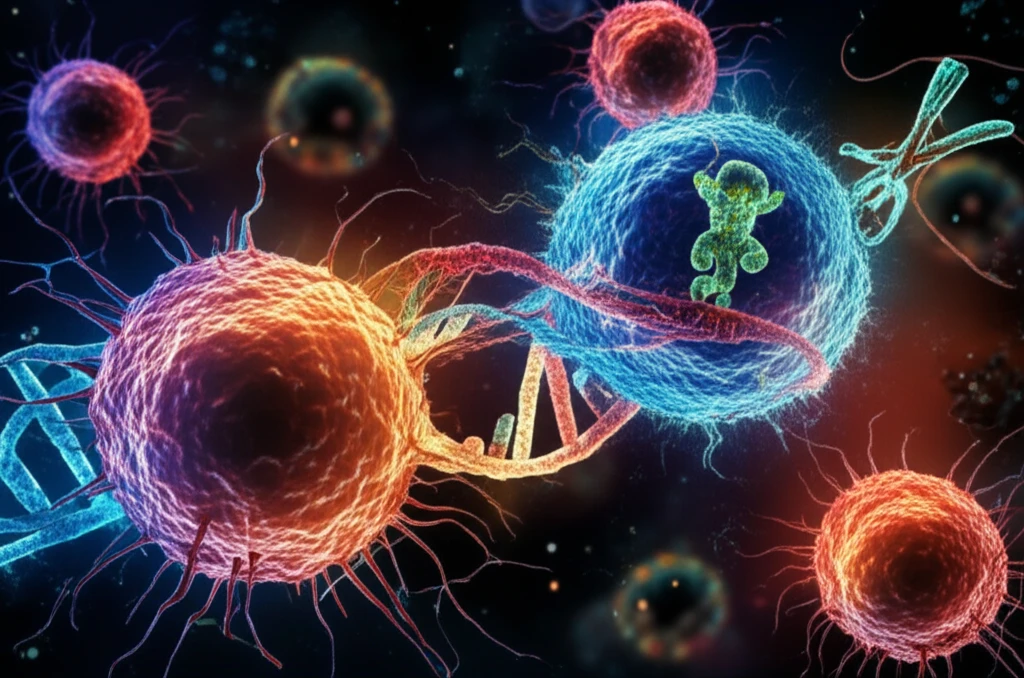
Can Proteasome Inhibitors Stop Cancer?
"New research explores how proteasome inhibition prevents cell death in cisplatin-treated cells, offering potential breakthroughs in cancer treatment strategies."
Cisplatin, a potent chemotherapy drug, is a cornerstone in the treatment of various cancers. It acts by damaging the DNA of rapidly dividing cancer cells, triggering a cascade of events that lead to cell death. However, the development of resistance to cisplatin remains a significant hurdle in cancer therapy, leading researchers to explore new strategies to enhance its effectiveness and overcome resistance mechanisms.
One promising avenue of research involves proteasome inhibitors. Proteasomes are cellular machines responsible for breaking down unwanted or damaged proteins. By inhibiting proteasomes, researchers aim to disrupt the cellular processes that contribute to cancer cell survival. Recent studies have investigated how proteasome inhibition can influence the effectiveness of cisplatin and whether it can help prevent cancer cells from developing resistance.
Researchers have focused on understanding the intricate relationship between proteasome inhibition and cisplatin treatment. The study sheds light on the mechanisms by which proteasome inhibitors can prevent cell death induced by cisplatin, potentially opening new doors for cancer treatment.
Understanding Proteasome Inhibition and Cisplatin: A New Approach to Cancer Treatment

The research highlights the role of proteasome inhibition in preventing cell death induced by cisplatin. This finding suggests that proteasome inhibitors could enhance the efficacy of cisplatin by preventing cancer cells from surviving the DNA damage caused by the drug. This approach could be particularly useful in cancers that have developed resistance to cisplatin.
- Proteasome Inhibition Prevents Cell Death: Protects against cisplatin-induced cell death but not MMS-induced cell death in yeast.
- Unique Mechanism: Unlike cisplatin, MMS does not induce active cell death in yeast.
- Unaffected DNA Damage Response: The proteasome does not alter the DNA damage response caused by cisplatin.
- Downstream Function: Proteasome inhibition functions downstream of cisplatin-induced DNA damage.
Future Directions and Implications
The insights from this study pave the way for new research directions in cancer therapy. By understanding how proteasome inhibitors interact with cisplatin, researchers can develop more effective combination therapies that overcome cisplatin resistance and improve patient outcomes. These advancements could lead to more personalized and targeted treatments, ultimately enhancing the quality of life for cancer patients. Further research is needed to translate these findings into clinical applications, but the initial results are promising.
